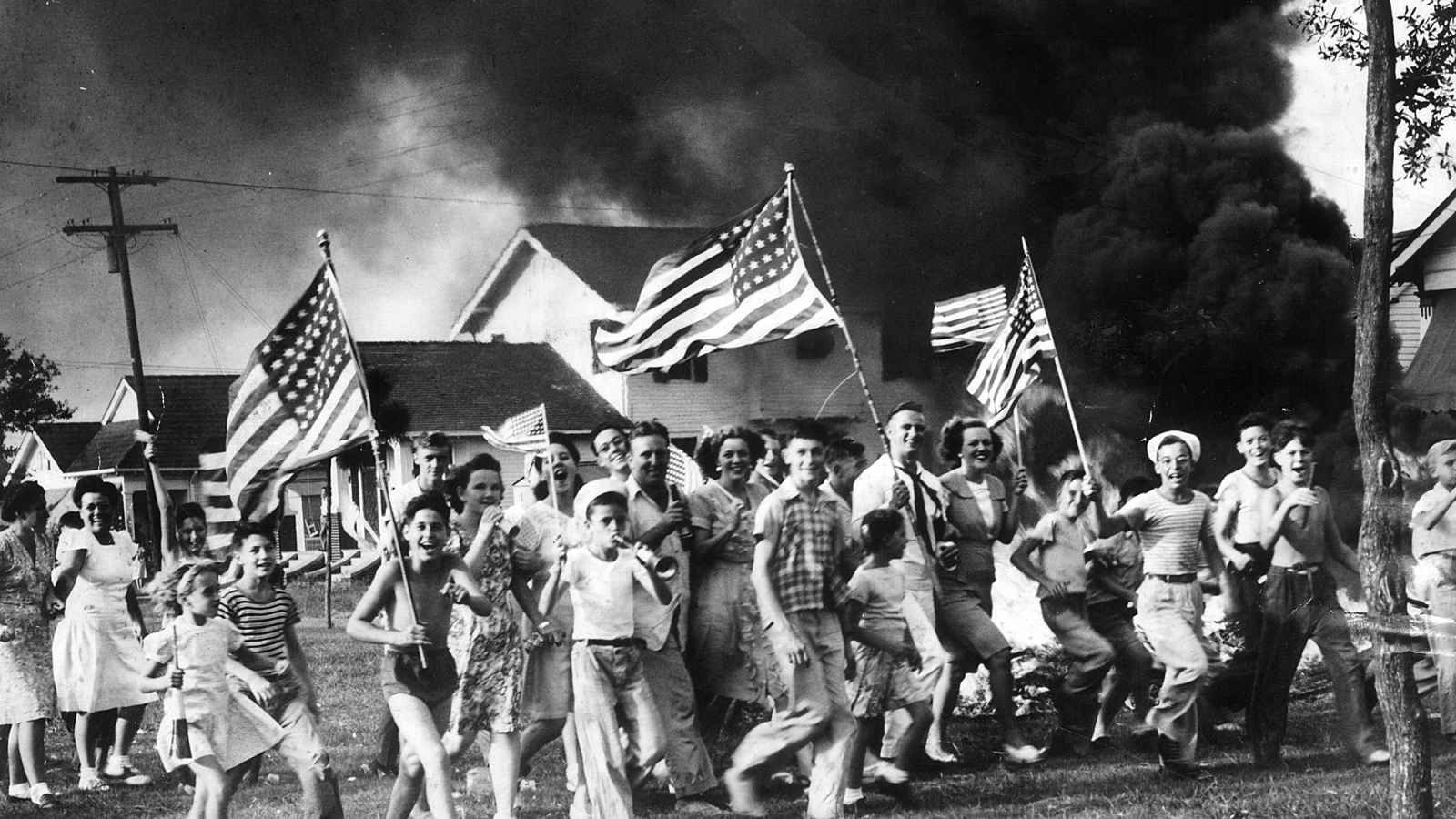V-J Day, observed annually on September 2 in the United States, commemorates the victory of the Allies (the United States, Great Britain, France, and other nations) over Japan during World War II, which marked the end of the massive conflict. It is generally accepted that the atomic bombing of two major Japanese cities (Nagasaki and Hiroshima) by the United States, which resulted in such a massive loss of Japanese lives that there was no chance of victory for the island nation thereafter, precipitated the Japanese Empire’s surrender.
The background of VJ Day
In the same way that a statement such as “I’m not a hero, I just did what anyone would have done” has become hackneyed, we believe that in the middle of the 20th century, the phrase “ultimate sacrifice” held a more raw and personal significance than it does today. Americans had never seen anything similar. Prior to World War II, the First World War was considered “the war to end all wars”; however, in terms of death tolls, World War II resulted in approximately three times as many deaths as its predecessor (50-80 million lives lost, or approximately three percent of the world’s population).
In other words, the average person was spontaneously overcome with joy and emotion on the day of declared victory, to the point where some V-J Day celebrations around the globe resembled riots and cost lives. However, the nation and western civilization were united. The triumph of good over evil.
Today, the European and Pacific Theatres of World War II continue to be a common source of story material for the History Channel, other popular television networks, numerous Hollywood films, and a vast amount of printed fiction and nonfiction literature. We believe it’s safe to assume that our readers have a basic understanding of the United States’ entry into the war following the kamikaze Japanese (conventional explosive) bombing of Pearl Harbour, through the American landing on the beaches of Europe, sacrificing life and limb to fetter the Nazi animal, and gradually gaining ground, to the bitter end.
Likewise, the iconic images are indelible. As it turns out, the famous photograph of a sailor sweeping a Navy nurse into his arms and kissing her during the public celebration of V-J Day in Times Square is actually a composite of two photographs taken of the same couple by two different photographers whose work was published in two different national periodicals. More on that to come. For the time being, however, let us all concur that the celebration of V-J Day on September 2 is not something to be taken lightly, given the true costs of war, yet it should be a source of positive pride and the relief brought by the end of a trying labour, passed down through generations.
World Coconut Day 2023: Date, History, Facts, Events
Calendar Adjustment Day 2023: Date, History, Facts about The Greek Calendar
5 INCREDIBLE FACTS ABOUT THE CONSEQUENCES OF V-J DAY
As previously mentioned, the famous “Kiss” photograph was actually two similar shots of the same moment: one published in the New York Times and attributed to Navy photographer Victor Jorgensen, and the other published in Life magazine and credited to lensman Alfred Eisenstaedt. Over the years, numerous men and women have claimed, with varying degrees of plausibility, to be the couple in the photo.
The bombings of Hiroshima and Nagasaki resulted in over 200,000 deaths.
Countless Japanese soldiers committed suicide in the days following their surrender, unable to bear the humiliation of being defeated in battle, and nearly 100 American captives in Japanese custody were murdered.
Officials of the island of Hong Kong dubbed the end of the war their “Day of Liberation” from fascist forces, but Hong Kong was merely returned to the British Royal Navy and became a British colony once more.
Rhode Island is the only state in the United States to recognise V-J Day as an official holiday, celebrating it annually on the second Monday of August, more than 77 years after the famous date. It was renamed “Victory Day” in the 1970s to remove any suggestion that its commemoration was in any way connected to gloating over the loss of Japanese lives.
VJ DAY DATES
| Year | Date | Day |
|---|---|---|
| 2023 | September 2 | Saturday |
| 2024 | September 2 | Monday |
| 2025 | September 2 | Tuesday |
| 2026 | September 2 | Wednesday |
| 2027 | September 2 | Thursday |




